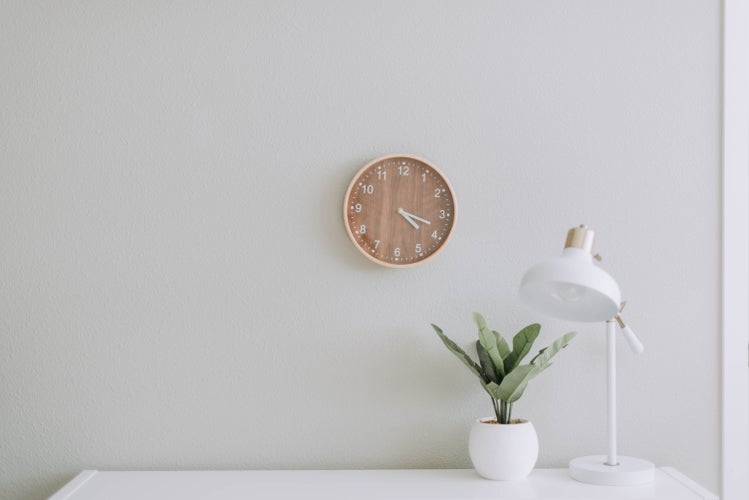Time management is a skill that, no matter where you find yourself, is essential. You’ll need it for the rest of your life, and the college transition into adulthood is the perfect time to master it. When you’re balancing a lot on your plate, it becomes easy to become overwhelmed. If you don’t have a schedule, it’s possible to overbook or not finish the things you need to do. We’ve all been there, and we all know it creates stress we don’t need. That is why I’ve put together this guide to time management because no one should stress when they don’t have to.
Use Google Calendar
I cannot stress this enough. Google Calendar sends notifications, can be shared with others, and you can take them everywhere with you. We’ve all been told the value of using a planner, but carrying around a little book isn’t always practical. Google Calendar makes it easy to add, delete, color code, or move events around from the comfort of your own device. What more could you want?
Plan ahead when you can
While you may not know what you’re doing every weekend from now until December, there are some things you do know. You know when you have class, exams, football games, birthdays, etc. If there is something you can put into your schedule now, do so. This makes it so much easier when you’re trying to figure out if something works or not and allows you to see when you need to dedicate more time to something.
Focus on both the big picture and smaller tasks
It’s important to both plans for the events that consume up much of your time and those that you can knock out in five minutes. Doing so allows for you to get an idea of everything you need to do, allowing you to organize tasks and maximize the amount of time spent on each one. It’s also important to be as detailed as possible. Instead of writing down “clean apartment,” write out individual chores so that you know how much time you can actually expect to spend cleaning.
Set deadlines
While in some departments of life we’re lucky that the timeline is created for us (like class), that is not always the case. If you need to do something and it doesn’t have a predetermined deadline, give it one. Doing so prevents you from putting it off until it’s too late.
Prioritize
There may be times where you have 30 hours of work and only 24 hours in a day. Sometimes you just can’t get it all done, and that’s okay. Prioritizing your to-do list and putting them in order of importance is such a crucial task because that way if you can’t get to it all you’ll have at least gotten the non-negotiables out of the way. That, my friends, is one of the easiest ways to prevent unnecessary stress.
Be honest with how long something takes
Managing your time can involve a lot of guessing. Whether it be finishing an assignment or getting an oil change, sometimes you’re just not sure how long something will take. When planning, it’s important to try and guess as accurately as you can, that way you’re not left with too much time or too little. This brings me to my next point…
Always create room for flexibility
You do not want to schedule every minute of your day to the millisecond. I am guilty of doing this one too many times, and if something goes wrong I find myself running late to every other event I had that day. Things that steer your plans off course happen, even if you don’t mean for them too. Creating room in between tasks in case things do go wrong allows for mishaps to happen without ruining everything else you have planned. What if they don’t, you ask? What if you plan for all of these possibilities and everything runs smoothly? Keep reading.
Use your free time
Free time is your friend. You want to use that time to your advantage. You can knock small tasks out of the way or complete something you had planned for a later time. If you find yourself with time on your hands, use it to be proactive so that you don’t find yourself swamped with tasks later.
Allow room for said free time
It may seem productive to leave no room for breathing from when they get up to when their head hits the pillow again. I promise you, it is a breakdown waiting to happen. Giving yourself time to unwind and recharge each day is so important. Self-care matters, and it shouldn’t be something you only do when you find yourself with extra time. Whether it’s taking a bath or watching a movie, be sure you’re spending some minutes on yourself.
Take breaks
In between tasks, take a few minutes to clear your head and regather your thoughts. This way, you’re more likely to stick to your schedule and get the things you need to get done completed. Taking three to five minutes every so often to do a lap around your living room or do some jumping jacks helps you feel more concentrated and centered.
Put your phone down
Taking breaks can seem like the perfect excuse to open TikTok or Twitter, but I’m here to tell you not to. That five-minute break can easily become a few hours if we go on our phone, so turning it off or keeping it out of arms’ reach when doing important tasks is the easiest way to make sure you don’t procrastinate and stick to a schedule.
Use certain days for certain things
When planning, we try to fit in as much as we can. Sometimes it seems like there’s so much to do, and there’s never enough time. This can often be because our lists don’t really coordinate, and tasks can be pretty random. By setting specific days for different tasks, it’s much easier to manage lots of activities. For me, Saturdays are for cleaning or getting groceries, among other errands, Sundays for assignments I didn’t get done, and so on. By organizing what you need to get done, (not just by category, but location or deadlines) you will make it so much easier and streamlined to complete what you need to.
Time management is not an easy thing to master, but it’s so important. Planning out your day and prioritizing tasks helps to prevent unnecessary stress and allows for everything you need to get done to happen. While it takes time to get it down, these skills will come as second nature before you know it.




